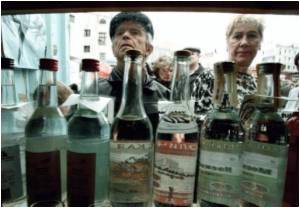A new study published in the American Journal of Public Health has found that increasing the costs of beer significantly reduces the rates of a wide range of alcohol-related deaths

According to the researchers, alcohol taxes have considerably larger effects than prevention programs on a state's burden of alcohol-related problems. The results suggest that doubling the average state tax on alcohol would be associated, on average, with a 35 percent reduction in alcohol-related mortality, an 11 percent reduction in traffic crash deaths, a 6 percent reduction in STDs, a 2 percent reduction in violence, and a 1.4 percent reduction in crime.
"Our meta-analysis cumulated information from all the published scientific research on this topic over the past half century, and results clearly show increasing the price of alcohol will result in significant reductions in many of the undesirable outcomes associated with drinking," said Alexander C. Wagenaar, PhD, professor of health outcomes and policy at UF College of Medicine and lead author of the study. "Simply adjusting decades-old tax rates to account for inflation could save thousands of lives and billions of dollars in law enforcement and health care costs."
For this meta-analysis study, the researchers identified 50 published research papers containing 340 estimates of the effects of alcohol taxes or prices on the rates of a variety of outcomes, including: all-cause morbidity and mortality, alcohol-related diseases or injuries, violence, suicide, traffic safety outcomes, STDs and risky sexual behaviors, other drug use, and crimes and misbehaviors. Through a meta-analysis of the aggregate data from all those studies, the researchers found that alcohol prices and taxes are significantly and inversely related to all outcome categories examined except suicide, for which data were too sparse to draw a firm conclusion.
"Results are surprisingly consistent," said Wagenaar. "With the sole exception of suicide rates, every category of outcome examined shows a significant effect of alcohol taxes and prices."
Today's study follows a previous meta-analysis study through which these researchers found that a 10 percent increase in alcohol price results in about a 5 percent reduction in alcohol consumption. That study examined 112 research papers containing 1,004 estimates of the effects of alcohol prices on alcohol sales and drinking behaviors.
Advertisement
Advertisement











